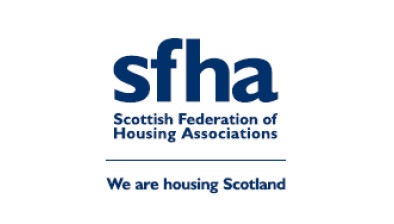New regulatory framework published by Scottish Housing Regulator
Every Registered Social Landlord (RSL) in Scotland will be assigned a compliance status regarding its governance and financial viability under new plans unveiled by the Scottish Housing Regulator.
Publishing its new Regulatory Framework and statutory guidance for social landlords today, the Regulator said landlords will have ‘Compliant’ status unless it judges any areas of non-compliance to be so material and significant, and of such risk to tenants’ interests, that a different regulatory status is required.

‘Complaint’ status will mean the RSL meets the Standards of Governance and Financial Management and regulatory requirements, while ‘Working towards compliance’ states the RSL does not meet the Standards of Governance and Financial Management and regulatory requirements, and it is working to achieve compliance. ‘Statutory action’ is given to RSLs which do not meet the Standards of Governance and Financial Management and regulatory requirements, and statutory powers will be used to address the non-compliance.
Set to go live from April 1, the new framework sets out how the Regulator will regulate social landlords in Scotland.
Under the plans, all landlords must prepare and publish an Annual Assurance Statement to confirm to their tenants and to the Regulator that they are meeting regulatory requirements for local authorities and RSLs. For RSLs, this includes meeting the Standards of Governance and Financial Management.
The Regulator said the statements “support openness and a culture of continuous assurance and improvement”.
George Walker, the Regulator’s chair, said: “I am delighted to announce the publication of our new Regulatory Framework.
“We will continue to keep our focus on safeguarding and promoting the interests of tenants, people who are homeless, factored owners and gypsy/Travellers at the heart of our work.
“We will continue to empower tenants with easy-to-use information about their landlord, take action where we need to and promote a culture of assurance, openness and transparency.
“We will support landlords to get the assurance they need that their organisation is well-run and so delivers good outcomes for tenants, people who are homeless and others who use their services.
“Our new Framework is the culmination of a yearlong discussion with tenants, landlords, representative bodies, funders and others. Thank you to everyone who responded to our consultation, discussion paper or come along to one of our events across the country. Your feedback helped shape the new Framework and we’re grateful for your input.”
The new framework has been welcomed by the Association of Local Authority Chief Housing Officers (ALACHO).
Responding to the proposed changes during the consultation stage, ALACHO members highlighted a number of risks that it felt the Regulator had yet to fully address. These included delays in the completion of some adaptations for tenants with disabilities, meeting the needs of tenants faced with domestic abuse and the affordability of rents. ALACHO said it saw these issues as reflecting a need to improve focus on equalities and human rights issues.
The representative body for senior council housing officers said the new regulatory framework has a much clearer focus on equalities and human rights and a more specific requirement for landlords, including council landlords to demonstrate how they are meeting these obligations and promoting the interests of tenants and other service users.
Annette Finnan, co-chair of ALACHO, said: “The regulator asked councils and housing associations as well as tenants and other service users about how best to regulate public sector housing services. They have clearly listened to the points the sector has made and the concerns that have been raised. We look forward to working with the SHR to ensure that services across the sector continue to improve.”









